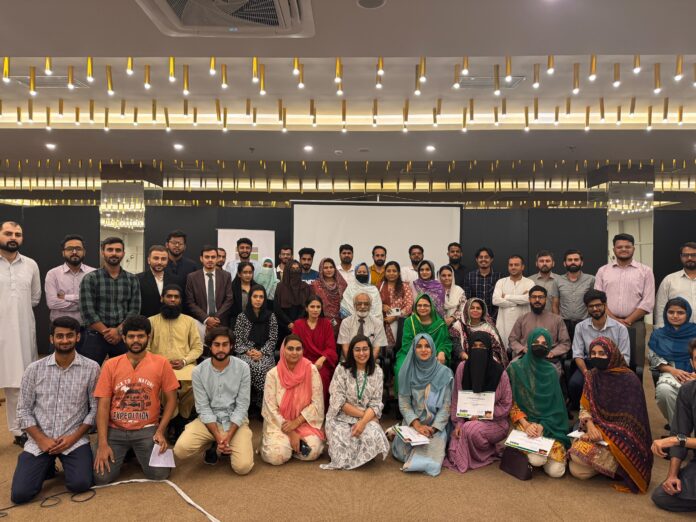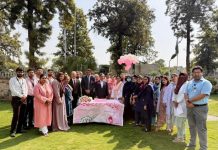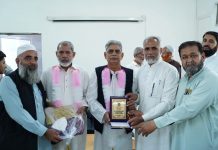By Ali Imran
ISLAMABAD: The experts and young people at a youth training workshop on learning not to burn household waste have vowed to curb open waste burning (OWB) which was the leading source of air pollution and carbon emissions in all the major cities of the country.
The Institute of Urbanism (IoU), with the support of the Royal Academy of Engineering (RAE), organized a youth capacity-building workshop titled ‘Let’s Learn Why Not to Burn’. The event brought together a diverse group of experts, stakeholders, students, and members of the Prime Minister’s Youth Programme’s (PMYP) Green Youth Movement (GYM) clubs to address the critical issue of open waste burning (OWB) and explore sustainable alternatives to it, a news release said. The OWB is primarily employed as a waste disposal technique in countries where waste management infrastructure is limited. Since only 60 – 70% of the generated waste is collected in urban areas of Pakistan, many communities and front-line waste workers resort to OWB as a cheap alternative to get rid of accumulated waste.
According to estimates, OWB contributed around 0.9 Mt CO2e in 2017-18 in Pakistan. Recognizing the threat, it poses the Government of Pakistan included the prevention of OWB as one of the five priority areas under the National Clean Air Policy 2023 and has also placed a complete ban on the burning of municipal, agricultural and hazardous waste under the mitigation objectives of the NDCs. Yet, the implementation framework for preventing the practice remains weak.
Senior Program Coordinator at IoU, Ayesha Majid underscoring the severity of the issue said, “OWB is a big source of carbon emissions and air pollution in Pakistan. It also contributes to the issue of smog, which has become the fifth and extremely dangerous reason in many of our major cities. Eliminating the practice therefore is critical for the environment and public health”
Senior Program Fellow at IoU, Dr. Ejaz Ahmad highlighting other environmental implications mentioned, “the release of toxic gases and harmful microplastics from open waste burning contaminates our air and environment. This practice endangers public health and requires immediate cessation”.
During the fishbowl session aimed at finding sustainable alternatives to OWB, Head of Environmental Sciences at AIOU, Dr. Sofia Khalid highlighted that “mostly people burn single-use plastic bags, rags, and leaves as they are not considered to have any further use. In addition to better systems from the government, we also need to focus on improving the knowledge of communities and sanitary workers about the harmful impact it has on their own and their community’s health.”
Responding to that, Founder of Eco-organics Fertilizer, Aqsa Arshad emphasized that “green and brown waste if properly utilized would not need to be burned as it can be converted into compost and biofertilizers and subsequently be sold for a profit. Just over the past few months my start-up has diverted a significant amount of waste from dumping sites and converted into 500 kg of compost instead.”
Highlighting the role of behaviour change in making the practice of segregation common, Raza Javaid, Founder, of Waste Hero, said, “Mismanagement of waste including OWB is also a behavioral issue. We as a community need to take ownership of our waste and stop considering it as just a nuisance. Waste has a lot of potential and we can see how other countries are leveraging it. We also need to change our perception of waste and those who choose to work with it for a sustainable future.”
Participants, including students, also shared their perspectives. Usama Imtiaz from QAU noted that “the primary challenge in waste management is the lack of awareness,” while Talha Ajmal from COMSATS emphasized that “leveraging digital platforms can be a powerful tool in raising awareness and curbing open waste burning practices.”
The Institute of Urbanism remains dedicated to fostering a greater understanding of the hazards associated with OWB and advocating for sustainable waste management solutions across Pakistan.






